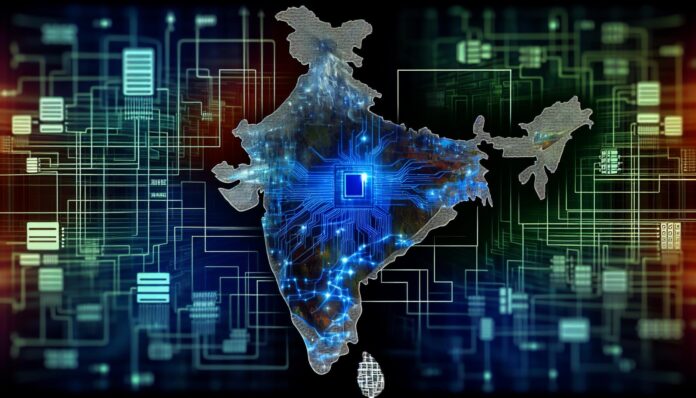India’s AI Revolution: Towards True Independence
India’s ambition to achieve AI independence is gathering unparalleled momentum. Most importantly, this initiative goes beyond simply adopting global technologies; it is shaping a robust, homegrown AI ecosystem that directly addresses local challenges and aspirations. In May 2025, India achieved a significant milestone by surpassing 34,000 GPUs, a feat that reflects both technical prowess and strategic vision. This accomplishment, announced by the Press Information Bureau (PIB Press Release), underscores the nation’s commitment to democratizing advanced technology and making state-of-the-art AI accessible to all.
Because of these investments, India is positioning its technological landscape to foster indigenous innovation. As part of the IndiaAI Mission, three leading startups were selected to develop foundational models specifically designed for the national context. This initiative not only reflects the country’s dedication to technology self-sufficiency but also encourages local participation in critical technology development. Therefore, policymakers and industry experts agree that these measures will contribute to a transformative shift in how AI impacts everyday life in India.
Building Blocks: Compute Capacity and Bespoke Foundation Models
India’s rapid compute capacity expansion is the backbone of its emerging AI infrastructure. Because small businesses, academic institutions, and innovative startups now have access to common compute resources, the digital divide is steadily narrowing. Besides that, the launch of AI Kosh in March 2025 marks a turning point, hosting over 300 diverse datasets and more than 150 AI models. This initiative supports critical sectors including healthcare, agriculture, finance, and education, making AI tools available to a wide array of societal segments.
Most importantly, the development of localized foundation models like the multinational generative AI project, Bharat Gen AI, caters to India’s unique linguistic and cultural landscape. This focus on localized solutions is not only a technological upgrade but also a social enabler, fostering inclusive growth. As detailed in various industry discussions and reports, such initiatives help tailor AI outputs to meet specific regional needs and elevate public service efficiency.
Policy, Collaboration, and the Ethical Integration of AI
Policy and collaboration play a pivotal role in India’s AI journey. Government strategies emphasize not merely technical self-sufficiency, but also the ethical, democratic use of AI for public welfare. Because the government has been actively promoting public-private partnerships, the infusion of novel ideas and technologies is accelerating rapidly. For example, as a founding member and the 2024 president of the Global Partnership on Artificial Intelligence (GPAI), India has reinforced its stance on responsible AI through international cooperation and shared best practices.
Furthermore, clear policies aimed at ensuring data privacy, reducing algorithmic bias, and encouraging open access to computing resources are crucial. Most importantly, these policies are designed to secure sensitive information while still empowering a wide range of stakeholders including educators, healthcare professionals, and innovators. Therefore, India’s efforts in technology governance serve as a blueprint for other nations striving for balanced progress in the digital age. More details on ethical AI initiatives can be explored in reports like the ones from the Atlantic Council and on YouTube channels documenting India’s AI journey (India’s AI Journey | 20 May, 2025).
Predicting Future Epidemics: The Power of AI-Driven Health Security
In parallel with AI independence, India is leveraging digital technologies to enhance public health security and epidemic prediction capabilities. Most importantly, AI-driven predictive models now play a critical role in early warning systems. By analyzing vast streams of data from social media, electronic health records, and environmental sensors, these models can identify potential health risks before they escalate into full-blown epidemics.
Because of India’s expansive AI ecosystem and initiatives like AI Kosh, researchers have unprecedented access to high-quality and localized datasets. This has allowed for the fine-tuning of AI models that predict disease spread with remarkable precision and speed. Therefore, the integration of predictive analytics into public health not only accelerates epidemic response but also provides critical support for policy planning. More insights and analyses on future epidemics can be found through platforms dedicated to exploring the intersection of AI and healthcare, as seen in various research publications and thought leader discussions available on sites like AITopics.
Overcoming Challenges and Vision for a Resilient Future
Despite remarkable progress, India is not without its challenges. Because the quality of data and the security of sensitive information must be maintained, there are ongoing efforts to ensure that AI models operate without bias and with a high degree of reliability. Most importantly, maintaining robust cyber security protocols is essential, especially as the volume of data continues to grow. In addition, nurturing local talent and curbing brain drain remain critical to sustaining innovation at scale.
Most importantly, fostering an environment of open innovation and transparent data practices ensures that technological advancements are achieved in a socially responsible manner. Therefore, India continues to invest in state-of-the-art compute infrastructures and regulatory frameworks that support long-term resilience and global competitiveness in AI-enabled health security.
Conclusion: India’s Blueprint for AI Autonomy and Global Impact
In conclusion, India’s journey towards AI independence and its proactive approach in employing AI for epidemic prediction are setting formidable global benchmarks. Because India has strategically focused on expanding compute capacity, nurturing localized innovation, and enforcing ethical technology practices, it now stands as a leader in technological autonomy and public health security.
Furthermore, India’s comprehensive strategy demonstrates that rigorous investment in technology can yield significant benefits for both national development and global health. Besides that, the emphasis on collaborative policy, coupled with sustained infrastructure growth and innovation, positions India as an exemplary model for countries seeking resilient and inclusive AI-driven futures. As we look to the future, India’s roadmap offers a compelling vision of how advanced technology can work hand-in-hand with policy to create a better, more secure world.
References
- Press Information Bureau: India’s Common Compute Capacity Crosses 34000 GPUs
- Atlantic Council: India’s Path to AI Autonomy
- YouTube: India’s AI Journey | 20 May, 2025
- AITopics: Future Epidemic



